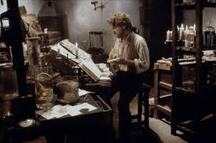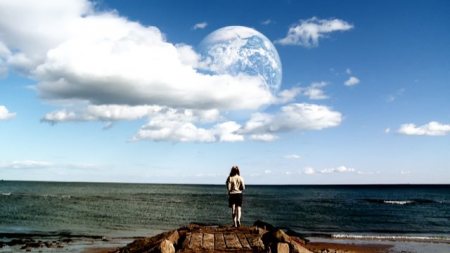|
When I was in growing up, my parents had HBO. The local college library was good for classics like National Velvet and all manner of screwball Lily Tomlin comedies, but if you really wanted to keep up with current releases, like Mary Shelley's Frankenstein, the 1994 effort of my then-favorite director Kenneth Branagh (yes, really), then HBO was your source.  Things I learned from Branagh's Frankenstein: 1) Who Robert DeNiro was. (Actually, I may have learned that from Cape Fear a few years earlier...) 2) Frankenstein is the scientist not the monster. Everyone has this realization at some point. Mine I owe to shirtless Branagh. 3) It would really, really, really suck to be falsely accused of murder. Especially if the punishment is being thrown off a dizzying tower with a noose tied around your neck. Having just (belatedly) read the novel for the first time, I'm pretty tempted to revisit that no doubt outrageous, action-packed film, but for now, a completely different movie comes to mind -- in part because Frankenstein the novel is less action-packed than I might've expected. Big moments like the animation of the creature and Victor's wedding receive but one sentence. Murders happen primarily off-stage and are told back to us in (mostly) bloodless summary. When Shelley does indulge in long descriptions, they usually address the creature's plight in a hostile world, Victor's anguish over his own hubris or, true to the Romantic movement, the awesome natural world around them. On one of his many perambulations, on which he broods over What He Has Done, Victor encounters the shimmering Swiss mountains of his youth: "The Alps, whose white and shining pyramids and domes towered above all, as belonging to another earth, the habitations of another race of beings." "Another earth," of course, calls to mind Mike Cahill's 2011 film of the same name, in which a young woman named Rhoda dreams about starting over on Earth 2, a twin body that has suddenly appeared in the sky over our own planet. Like Victor, Rhoda has some blood on her hands, and like him, she experiences paralyzing remorse. What better way to purge that guilt than to enter a parallel universe, a majestic one you can see from the bleak place you inhabit now, where none of your crimes exist? It's an irresistible fantasy -- to escape and start fresh as a better version of yourself who would never, ever destroy a life. Is it relevant here to mention that Mary Shelley was pregnant when she wrote that line? I think it is. What's more, having just returned from Seattle, where clouds do fun things to mountains, I can affirm that snowy peaks really do often look like perfect castles in the sky.
1 Comment
|
Aboutauthor of The Violet Hour, reader, prodigious eater of ice cream Archives
June 2014
Categories
All
|

 RSS Feed
RSS Feed